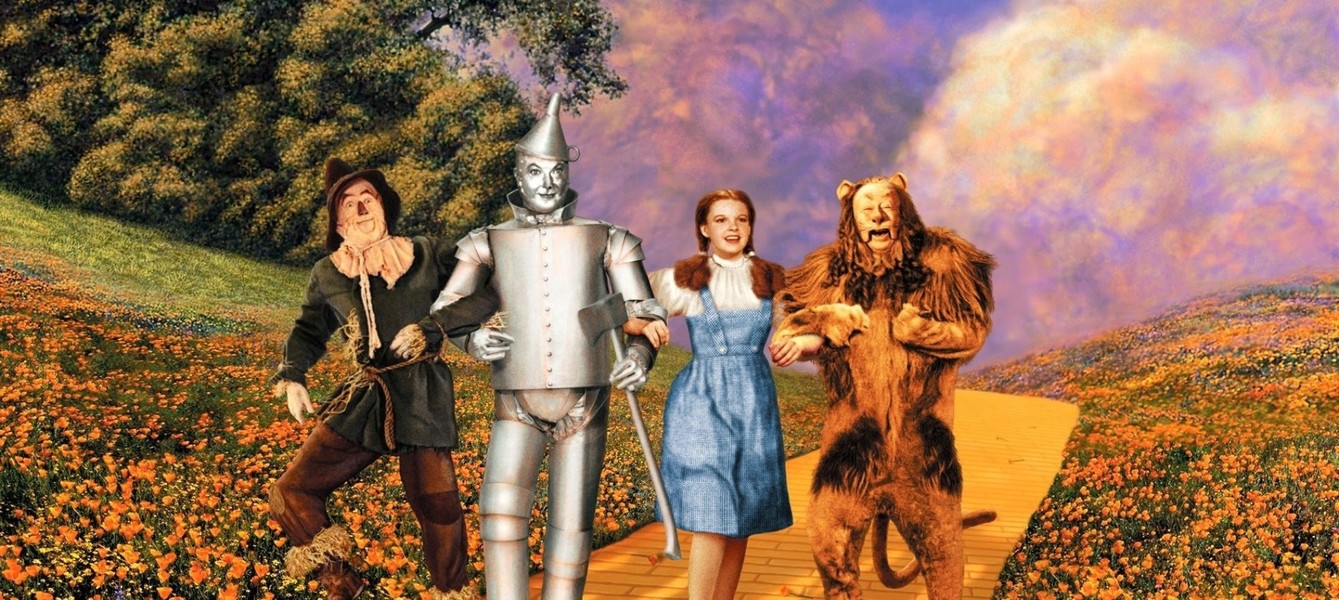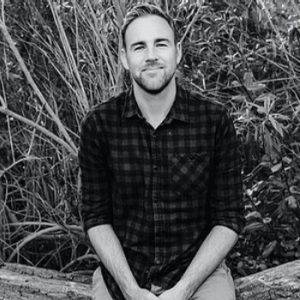An Excerpt from Even a Stone Can Be a Teacher by Sheldon Kopp (Edited and Published by Dr Mitch Keil)
In the original story, Dorothy, the young heroine of the tale, is an orphan who has come to live with her foster parents, Aunt Em and Uncle Henry. Their home is dull and gray, as is everything else in the sunbaked, unyielding land of Kansas, USA. Aunt Em is described as an unsmiling sober woman, thin and gaunt, who, when Dorothy first came, was so startled by the girl’s laughter that it would cause her to scream and press her hands upon her heart. Uncle Henry is a man who never laughed, looked stern and solemn, and rarely spoke. It was only Dorothy’s dog Toto and her good heart that made her laugh and saved her from growing as gray as her surroundings.
Early in the story, Dorothy is separated by a cyclone from her foster family and from the world of familiarly unhappy surroundings. The storm whisks her and Toto, together with their house, away from the plains of Kansas, off to the bewildering land of Oz. It is this crisis of being uprooted, flooded with fantasy, and no longer in touch with the familiar misery of home that leads Dorothy to seek the help of the Wizard of Oz in his great place in Emerald City. Her house, it seems, had landed on the Wicked Witch of the East and killed her. Dorothy, of course, points out that this is in no way her fault. In fact, Aunt Em had told her that there were no witches living anyway. The Good Witch of the North (a good mother at last) is of more help. She has Dorothy put on the ruby slippers of the dead witch and refers her to the Wizard for treatment of her problems.
And so, like many patients. Dorothy seeks treatment, not out of having some perspective on her long unhappy family life, but rather in the midst of a crisis of the moment that separates her from her family or from her usual ways of handling things at home. It is so often not chronic unhappiness, but rather present confusion and situational distress that lead people to the office of the psychotherapists. All Dorothy wants is to go back home to the known safety of her unsatisfactory family life, rather than tolerate the promise of her new and unfamiliar world. She prefers the security of misery to the misery of insecurity.
On the way to Emerald City she meets other distressed creatures who need psychotherapy but do not know it is available until they meet Dorothy. They are, of course, the Scarecrow, the Tin Woodman, and the Cowardly Lion. The Scarecrow’s problem is that he has no brains at all. Dorothy finds him perched on a stick in a cornfield, harassed by crows. He is the inadequate man, who acts foolishly and is sure that his foolishness is no fault of his own–he simply lacks what he needs to behave competently and wisely. In the meanwhile, people must not expect too much of him, but must protect him from fire because he is stuffed with straw.
Next Dorothy comes upon the Tin Woodman standing in the woods with uplifted ax in his hands, rusted so badly that he cannot move. His problem is that though he seems very polite, he has no heart. He once was a man of flesh and blood, but was hurt so often that he gradually had all the parts of his body replaced with tin. And, alas, the heart was left out. He, too, is not responsible for this unfortunate state of affairs. If only someone would do something for him, he might be able to really care about people instead of merely appearing to be polite. His problem with rust requires that other people be around to oil him up, or he just won’t be able to function.
The third companion startles them in the woods. It is the cowardly lion, who menaces them with unwarranted mock ferocity but all too quickly reveals that he is nothing but a big coward. Although he has brains and heart and home, he lacks courage. Therefore, he cannot be expected to follow through with boldness, to risk himself, to act like a man– or rather like a lion. He roars to scare others off, but if they stay to challenge, he shows his cowardice. “But how can I help it?” he pleads and then tells Dorothy that, now that she knows this, she must be careful not to frighten him.
When all four know one another’s problems, they set out for the therapists office on a joint venture that you might expect to give them some sense of empathyEmpathy is the ability to understand and share the feelings of another person. In psychodynamic ther… and genuine consideration for one another. Instead, after their mutual disclosures, each mutters self-centeredly to himself.
The Scarecrow: “All the same, I shall ask for brains instead of a heart; for a fool would not know what to do with a heart if he had one.”
The Tin Woodman: “I shall take the heart, for brains do not make one happy, and happiness is the best thing in the world.”
The Cowardly Lion: “What they each want is certainly less important than courage.”
And finally there was good sweet little Dorothy; if only she could get back home, she really wouldn’t care whether or not the others got what they wanted. Apparently, the really important thing is to get one’s own way.
When at last they arrive at the Palace in Emerald City, the Wizard does individual intake interviews with each of them. And as it is with new patients, each sees him very differently from the others. He appears variously to them as a lovely winged lady on a throne, an enormous head, a ball of fire, and a most terrible monster. Each approaches him as Dorothy did: “I am Dorothy, the small and meek. I have come to you for help…” Each is frightened and helpless. Somehow this entitles each one to special help and consideration which the Wizard absolutely must give, simply because he is adequate and strong. The Wizard, good therapist that he is, quickly comes across as a person who has his own needs. In therapy country, people must pay for what they get, meaning, these poor helpless patients must give something of themselves if they wish to get something for themselves.
The Wizard assigns them the task of killing the Wicked Witch of the West. They would like the Wizard to destroy the bad mother for them, but no matter how great and powerful a father he seems, he cannot do for them what they must do for themselves. He cannot even tell them how to go about their task. Each patient tries to “cop out” in his own way. Dorothy has already “accidently” killed the Wicked Witch of the East, but this time she must kill willingly and not by accident or without responsibility. She is reluctant because she cannot be forceful on purpose. Scarecrow says he will not be able to help because he is a fool; Tin Woodman because he does not have a heart for it; and Cowardly Lion because he is too fearful. In order to help them, however, the Wizard will not let them off the hook.
So, reluctantly, they set off to slay the Wicked Witch of the West. In the course of this adventure, in spite of themselves, they are caught up in their task and grow to have genuine concern for one another–so much so, that the scarecrow makes wise decisions, the Tin Woodman acts out of loyalty, and the Cowardly Lion performs bravely. Even Dorothy learns to be happy for her friends and their achievements, even when she fears she may never achieve her own desires.
This task assigned by the Wizard is a kind of teaching by indirection. As in psychotherapy, he insists they will get nowhere if they simply continue to bewail their fates and to insist stubbornly that because they have troubles, he must solve their problems magically (or at least be terribly sympathetic). Instead the Wizard directs their attention elsewhere.
In individual therapy we may get the patient to focus on his past history. In group therapy, we may encourage the patient’s curiosity about the group process. Some of what occurs as the patient reluctantly takes on these tasks is that the individual begins to lose himself when he gives himself over to the assigned work. As the patient is unhooked from his willful, self-sorry demand for relief right now, a new possibility arises: the patient now begins to experience the therapist and the other patients as real people with selves of their own—people who have meaning who can therefore be meaningful to him, and who can ultimately put him in touch with the meaning of his own life.
Once our adventurers have accomplished what they first insisted they could not possibly do— that is, slay the witch—they return to the Wizard, impatient for their rewards. They have not yet realized that they already possess these rewards. In the course of asserting themselves at the Wizard’s palace, they learn that he is not a Wizard at all—he is “just a common man” or worse, a humbug! When he is challenged, it turns out that he has problems of his own.
Disillusioned, Dorothy tells him “I think you are a very bad man.” “Oh no, my dear,” he answers, “I’m really a very good man, though I’m a very bad Wizard, I must admit.”
The Wizard then tries to help them understand the solutions at which they have already arrived. For Scarecrow, it was not a problem of lacking brains, but of avoiding the experiences that would yield knowledge. Now that he would risk being wrong, he could sometimes act wisely. So too with the Tin Woodman: it was not a heart he lacked, but rather a willingness to bear unhappiness. And, of course, Cowardly Lion needed not courage, but the confidence to know that he could face danger even when he was terribly afraid. Then Baum, with sympathetic tolerance for human foibles, has each patient insist that the Wizard confirm the individual accomplishment with an external token. In one version, the Wizard presents Scarecrow with a diploma, given Tin Woodman a solid gold watch for loyal service, and awards the lion a medal for bravery.
As for Dorothy, she learns that all she had to do to get home was to use the ruby slippers she wore. She needed only to knock the heels together three times and the shoes would carry her wherever she wished to go. That is, she learned that she had the power to go wherever she wanted and to make changes in her life if only she was willing to take the responsibility of recognizing and using that power.
Of course, the Wizard could have told them all this at the beginning of treatment, but they never would have believed him. How could they have accepted that their demands from others were human qualities that they already possessed? The insights are too simple to be grasped, too obvious to see, and can only be had when a person stops demanding them from the powerful Wizard/Parent who is supposed to take care of him. The patient must give up the internal struggle and become involved with another and with what comes between them.
Baum revitalized old lessons which must be learned again and again: wisdom involves risk of being wrong or foolish; love and tenderness requires a willingness to bear unhappiness; courage is the confidence to face danger despite fear; freedom and power require only a willingness to recognize their existence and to face their consequences. We can find ourselves only when we are willing to risk losing ourselves to another, to the moment, to a quest; love is the bridge.





